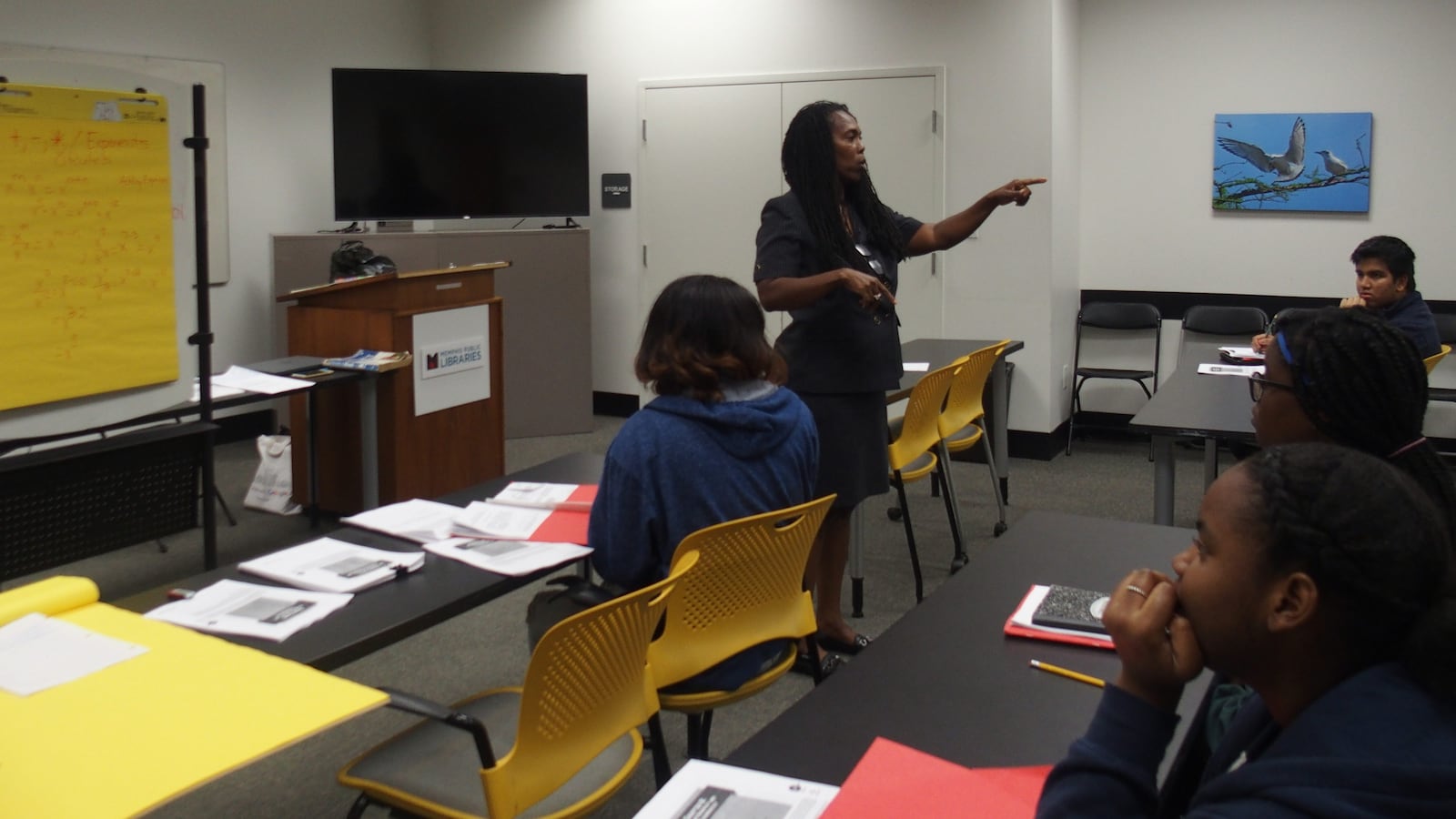When Sierra Hall took the ACT last school year, she remembers, “It didn’t go good.” Or at least, not as well as the Ridgeway High School senior had hoped.
“My biggest problem was time management, especially on the math section” said Hall at a recent ACT prep session in a Memphis public library.
That’s why when Hall found out the Benjamin L. Hooks Central Library was hosting a free 11-week program this summer, she, along with more than 100 students across the Memphis area, applied.
The program, which is funded entirely by a nonprofit citizens support organization called Friends of the Memphis Public Library, could only afford to offer 25 slots — Hall got one of them. Private test prep tutoring options can cost hundreds, if not thousands of dollars, shutting out large populations of students.
Hall isn’t alone in her struggle to improve her ACT score, especially when a high enough score can mean more money for college.
In 2017, the average score for students enrolled in Shelby County Schools was 17.8, compared with the statewide average of 19.8.
Students from Tennessee who plan to attend an eligible state college or university can qualify for the state’s HOPE scholarship, which can provide them with up to $6,000 for tuition. But they must score at least a 21 on the ACT or have a weighted grade point average of 3.0 or higher.
“I feel like my school courses didn’t prepare me for any of this,” Hall said. “They only prepared me for what’s going to be on the state test at the end of the year.”
But after spending eight Saturday afternoons with ACT instructors, and a few hours a week studying at home, Hall said things are finally clicking.
The disconnect between what students are learning in school and the skills required to excel on the ACT is a problem across Memphis schools, rooted in elementary and middle school instruction deficits.
“What I noticed when I was teaching was that everything is taught to the state test,” said Sharonda Walker, a former Whitehaven High School math teacher who now teaches the math sessions of the library’s ACT prep program.
“But math is a building block,” she said. “You can’t really do math if you’re missing some blocks. I felt like I was rushing through the material when I knew 90% of the class wasn’t there. The state would say you need to be on chapter three when a majority of kids were barely on chapter one.”
The library’s program is divided into multiweek units designed to reflect the three categories that appear on the ACT: math, language arts, and science.
“You either sit with confidence or you sit with frustration and guessing,” Walker said about one of the biggest barriers to acing the math section of the ACT. “Math is a definite. There are several ways to get there, but it is a definite and I want to see my students get there.”
All juniors enrolled in public school in Tennessee are required to take the ACT to graduate, and preparing students for college entrance exams is a chief priority of new Shelby County Schools Superintendent Joris Ray.
The board requested an additional $7.5 million from the Shelby County Commission in May.
Although the district already offers some ACT prep workshops, that request included an additional $300,000 for ACT prep and $2 million for academic reinforcement for students during fall and spring breaks — specifically reading, math, and ACT prep for high school students. The county commission approved $1.9 million of the total $7.5 million request.
Where the prep classes available in the Memphis district schools fall short, the library’s program is working to fill in the gaps.
For many years, the library has offered standalone half- and full-day ACT prep sessions. “We found that was not sufficient. We needed something over an extended period of time,” said librarian Denise Abdalla who helped coordinate the program.
Last fall was the first year the library offered an eight-week course. Abdalla said that although they are still working out the kinks of the program, “Eventually we would like to, funding permitted, have this type of program at other branches.”

